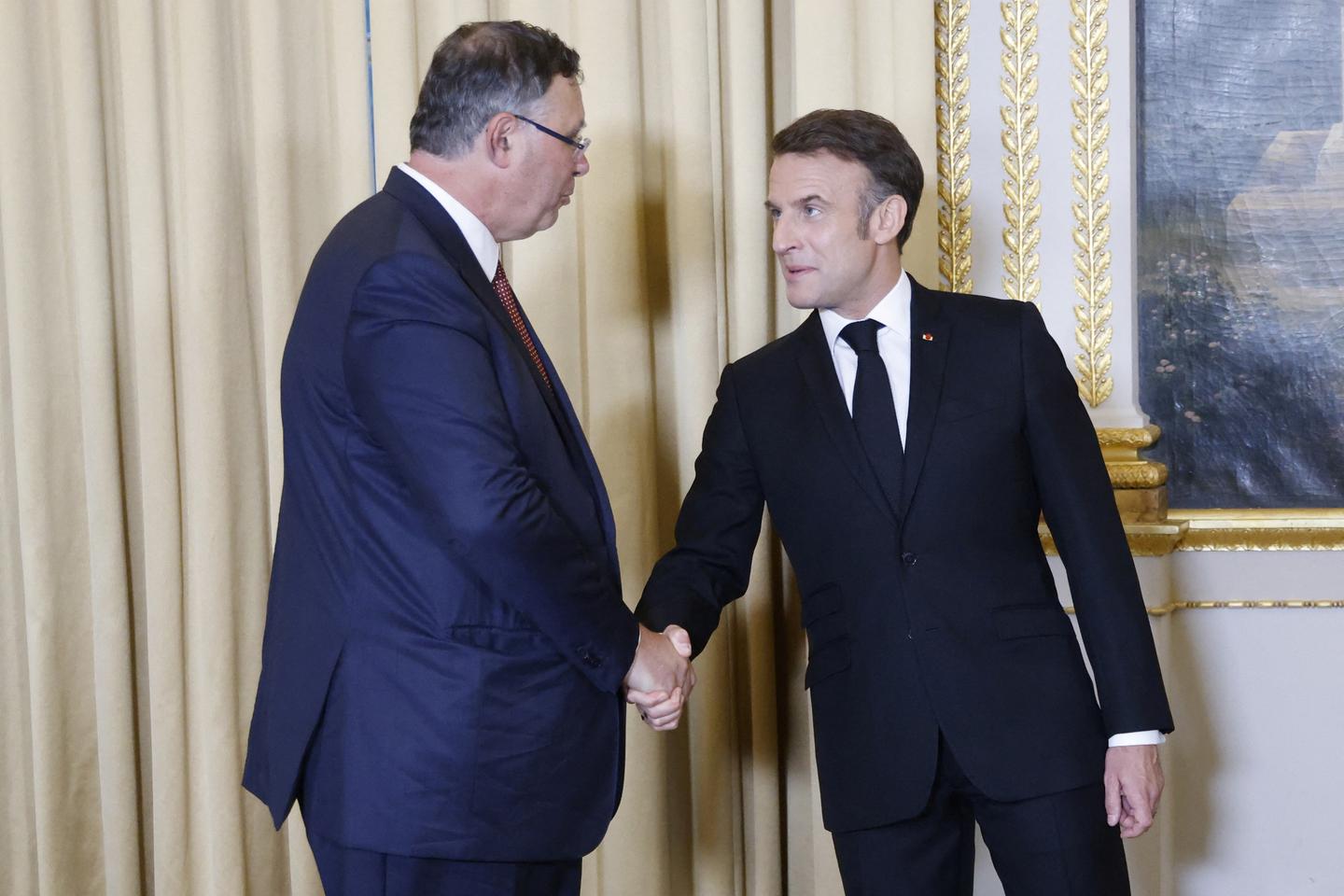French President Emmanuel Macron is said to be deeply frustrated with Nigerian President Bola Tinubu over the botched sale of TotalEnergies’ 10% stake in the SPDC onshore joint venture, according to multiple sources, who briefed Huhuonline.com, on conditions of anonymity. The deal, intended to free TotalEnergies from Nigeria’s high-risk onshore oil sector and allow a pivot into deepwater and gas, has stalled. The buyer, Chappal Energies, has reportedly failed to raise the funds, and internal conflicts and reputational damage are mounting for TotalEnergies.
NNPC sources told Huhuonline.com that the collapse of this transaction, valued at about US$860 million, is not simply a commercial failure. It is being seen in French diplomatic circles as a betrayal of trust, a signal that Nigeria under Tinubu is becoming an unreliable partner in energy deals. Industries close to Macron are increasingly worried that Nigeria’s regulatory, political, and infrastructural unpredictability is making French investment riskier.
What Went Wrong
An oil industry expert who spoke to Huhuonline.com on conditions of anonymity because he was not authorized to comment on the issue, disclosed that TotalEnergies structured the deal to sell its 10% stake in SPDC onshore licenses to Chappal Energies, which had past experience with distressed assets and had recently executed a sizeable deal with Equinor. However, Chappal has apparently been unable to finalize financing, in part because TotalEnergies’ valuation was seen as too high compared to similar transactions (ex, Shell’s earlier divestment of a 30% SPDC stake). Operational risk in the Niger Delta – sabotage, oil theft, environmental liabilities – have only magnified concerns, the source noted. The delay has triggered internal tensions at TotalEnergies headquarters, with executives being blamed for selecting a buyer poorly equipped to complete the deal, and for misjudging the political risk in onshore Nigerian operations.
Macron’s displeasure reportedly stems from several dimensions, not the least of which is the loss of what one source described as “strategic credibility.” France has long touted its multi-national companies as responsible investors in Africa, combining commercial strength with environmental, social, and governance (ESG) obligations. Such a high-profile failure undermines those claims. Besides, energy deals are central tools of economic diplomacy. When they falter, especially in politically sensitive sectors like oil, they weaken trust between states. Macron likely views this as a breach of expected standards – regulatory cooperation, transparency, reliable partners.
Back home in France, TotalEnergies is under pressure from investors and regulators to deliver on its pivot to cleaner energy and higher-margin ventures. Delays in Nigerian deals feed into criticism that the company is not executing its strategy, which reflects poorly on France’s energy diplomacy. Most importantly is geopolitical signaling. In a tighter global energy market, where senior executives and governments weigh risk heavily, failed transactions send signals. Other French companies may think twice before making large commitments in Nigeria, especially in sectors with high environmental, security, or regulatory risk.
One Aso Rock source noted that the implications for Nigeria-France relations is dire. If things do not move quickly to repair this fissure, the source warned, investor confidence could wane. French firms may increasingly view Nigeria as a difficult place to do business – unpredictable contract enforcement, political risk, regulatory delays. This could slow or reduce future French investment, not just in energy, but across infrastructure, technology, and other strategic sectors. This could strain diplomatic relations because Macron will have to answer questions at home: why did French state-backed companies expose themselves to this risk? Was enough due diligence done? Bilateral relations may suffer unless Nigeria takes visible steps to ensure transparency, regulatory stability, and contract certainty.
To which end, Nigeria may find itself under pressure – diplomatic, legal, or from multilateral institutions – to reform its systems: upstream licensing, environmental regulation, enforcement against oil theft and sabotage, financial regulatory certainty. Failure could not only cost Nigeria economically but also reputationally in forums such as Africa-EU or climate-related negotiations. France may shift away from onshore oil deals and lean more heavily into gas, offshore, or alternative energy projects in Nigeria (or elsewhere in Africa) with lower risk profiles. Bilateral cooperation may tilt more toward energy transition, renewables, green infrastructure, and away from troubled onshore oil projects.
What Nigeria must do is to urgently release the full details of the transaction, deadlines, and what went wrong in Chappal’s financing. Nigeria must also commit to predictable approvals, clear environmental standards, and security assurances. In addition, Nigeria should demonstrate that other French-led or French-backed projects are on schedule and fulfilling obligations. Finally, senior Nigerian and TotalEnergies stakeholders must publicly engage with French counterparts to salvage confidence.
Bottom Line
France’s patience may be wearing thin. The TotalEnergies SPDC sale fiasco is more than a business glitch; it is a diplomatic sore point exposing cracks in Nigeria’s ability to be a reliable partner. Macron is angry. For Tinubu, the path forward demands immediate, visible acts of healing: transparency, regulatory reform, contract integrity. Without that, Nigeria risks not just losing investments, but seeing its standing with one of its most important international partners erode.





